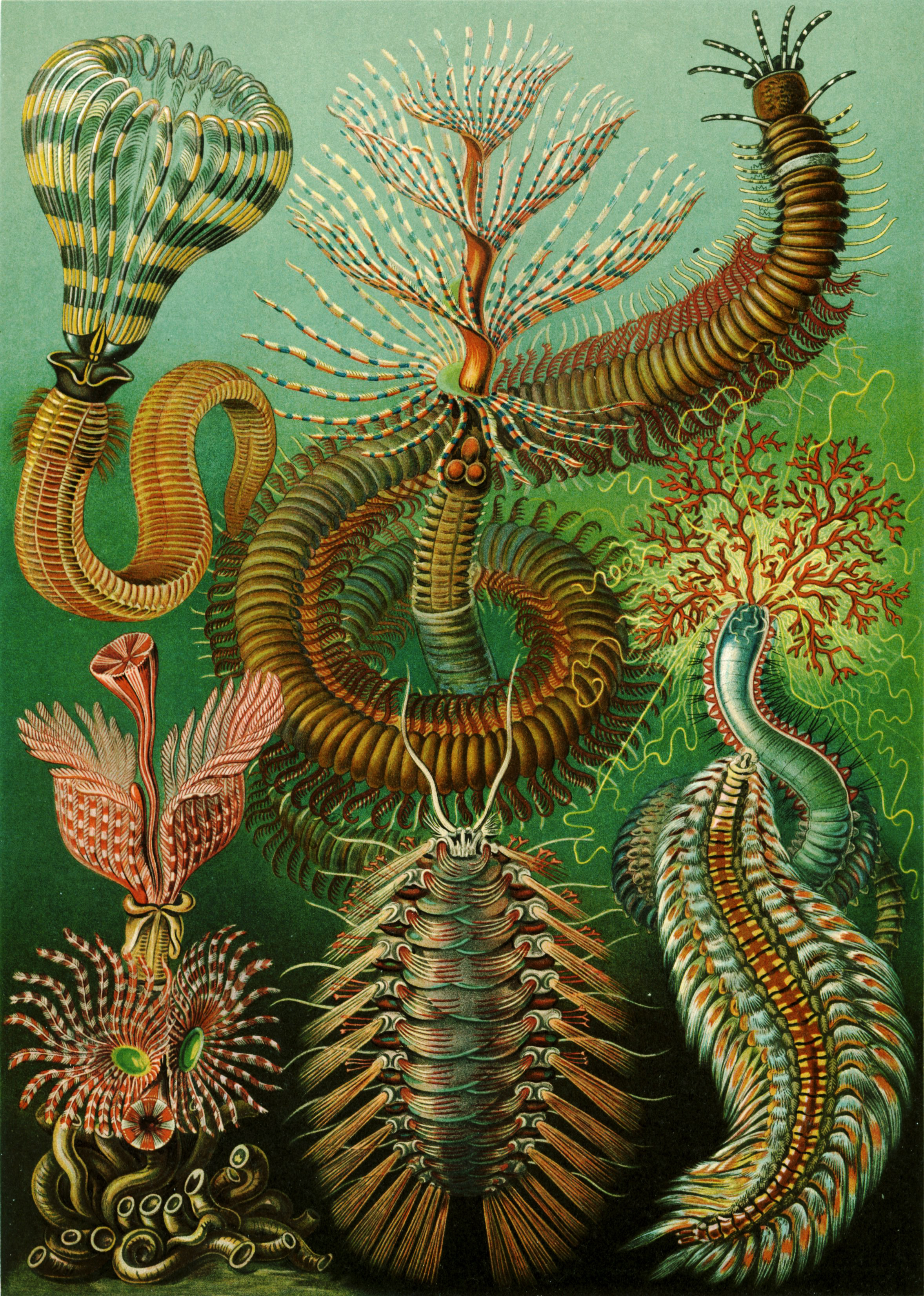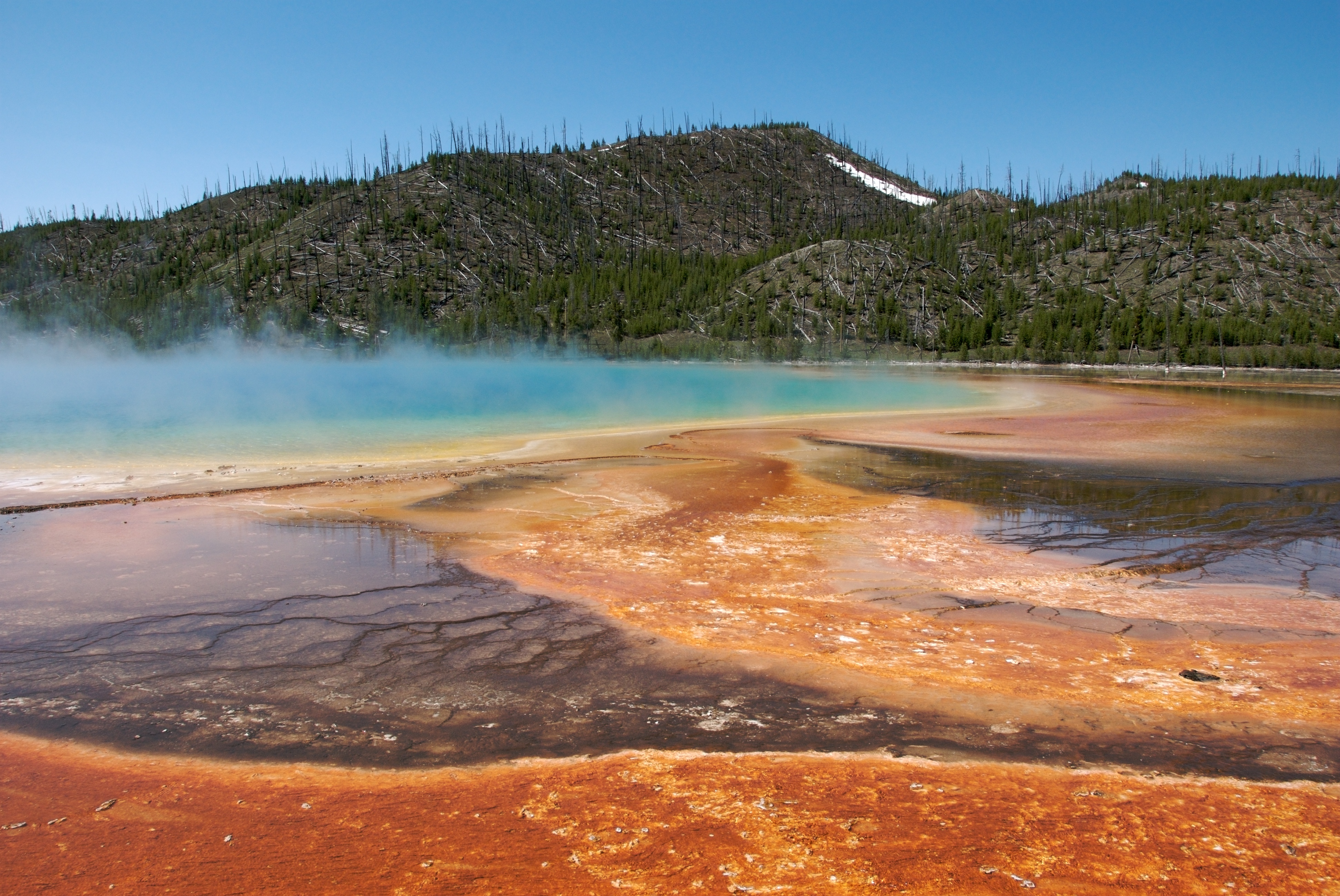|
Gert Wörheide
Gert Wörheide is a German marine biologist who works mainly on marine invertebrates. He earned his doctorate in geobiology from Georg-August-Universität, following this with a post-doctorate at Queensland Museum (1998-2002), where he worked with John Hooper on sponges, a collaboration which continues. Following his postdoctorate in Queensland, Wörheide returned to Germany to become a junior professor in molecular geobiology at Georg-August-Universität (2002-2008), and in October 2008 was appointed Chair of Geobiology & Paleontology at Ludwig-Maximilians-Universität (University of Munich) (his current position), where he continues to work on evolution and genomics, and all things pertaining to marine invertebrates. His most cited paper with 559 citations (at 2020-09-29) is "Resolving Difficult Phylogenetic Questions: Why More Sequences Are Not Enough". See also Taxa named by Gert Wörheide In biology, a taxon (back-formation from ''taxonomy''; plural taxa) is a ... [...More Info...] [...Related Items...] OR: [Wikipedia] [Google] [Baidu] |
Marine Invertebrates
Marine invertebrates are the invertebrates that live in marine habitats. Invertebrate is a blanket term that includes all animals apart from the vertebrate members of the chordate phylum. Invertebrates lack a vertebral column, and some have evolved a shell or a hard exoskeleton. As on land and in the air, marine invertebrates have a large variety of body plans, and have been categorised into over 30 phyla. They make up most of the macroscopic life in the oceans. Evolution The earliest animals were marine invertebrates, that is, vertebrates came later. Animals are multicellular eukaryotes, and are distinguished from plants, algae, and fungi by lacking cell walls. Marine invertebrates are animals that inhabit a marine environment apart from the vertebrate members of the chordate phylum; invertebrates lack a vertebral column. Some have evolved a shell or a hard exoskeleton. The earliest animals may belong to the genus '' Dickinsonia'', 571 million to 539 million years ago ... [...More Info...] [...Related Items...] OR: [Wikipedia] [Google] [Baidu] |
Geobiology
Geobiology is a field of scientific research that explores the interactions between the physical Earth and the biosphere. It is a relatively young field, and its borders are fluid. There is considerable overlap with the fields of ecology, evolutionary biology, microbiology, paleontology, and particularly soil science and biogeochemistry. Geobiology applies the principles and methods of biology, geology, and soil science to the study of the ancient history of the co-evolution of life and Earth as well as the role of life in the modern world. Geobiologic studies tend to be focused on microorganisms, and on the role that life plays in altering the chemical and physical environment of the pedosphere, which exists at the intersection of the lithosphere, atmosphere, hydrosphere and/or cryosphere. It differs from biogeochemistry in that the focus is on processes and organisms over space and time rather than on global chemical cycles. Geobiological research synthesizes the geologic record ... [...More Info...] [...Related Items...] OR: [Wikipedia] [Google] [Baidu] |
Australian Marine Biologists
Australian(s) may refer to: Australia * Australia, a country * Australians, citizens of the Commonwealth of Australia ** European Australians ** Anglo-Celtic Australians, Australians descended principally from British colonists ** Aboriginal Australians, indigenous peoples of Australia as identified and defined within Australian law * Australia (continent) ** Indigenous Australians * Australian English, the dialect of the English language spoken in Australia * Australian Aboriginal languages * ''The Australian'', a newspaper * Australiana, things of Australian origins Other uses * Australian (horse), a racehorse * Australian, British Columbia, an unincorporated community in Canada See also * The Australian (other) * Australia (other) * * * Austrian (other) {{disambiguation Language and nationality disambiguation pages ... [...More Info...] [...Related Items...] OR: [Wikipedia] [Google] [Baidu] |
Living People
Related categories * :Year of birth missing (living people) / :Year of birth unknown * :Date of birth missing (living people) / :Date of birth unknown * :Place of birth missing (living people) / :Place of birth unknown * :Year of death missing / :Year of death unknown * :Date of death missing / :Date of death unknown * :Place of death missing / :Place of death unknown * :Missing middle or first names See also * :Dead people * :Template:L, which generates this category or death years, and birth year and sort keys. : {{DEFAULTSORT:Living people 21st-century people People by status ... [...More Info...] [...Related Items...] OR: [Wikipedia] [Google] [Baidu] |
:Category:Taxa Named By Gert Wörheide
Taxa named by Gert Wörheide Gert Wörheide is a German marine biologist who works mainly on marine invertebrates. He earned his doctorate in geobiology from Georg-August-Universität, following this with a post-doctorate at Queensland Museum (1998-2002), where he worked ..., a German marine biologist specialising in invertebrates. {{DEFAULTSORT:Wörheide, Gert Wörheide, Gert ... [...More Info...] [...Related Items...] OR: [Wikipedia] [Google] [Baidu] |
Ludwig Maximilian University Of Munich The Ludwig Maximilian University of Munich (simply University of Munich or LMU; german: link=no, Ludwig-Maximilians-Universität München) is a public research university in Munich, Bavaria, Germany. Originally established as the University of Ingolstadt in 1472 by Duke Ludwig IX of Bavaria-Landshut, it is Germany's sixth-oldest university in continuous operation. In 1800, the university was moved from Ingolstadt to Landshut by King Maximilian I Joseph of Bavaria when the city was threatened by the French, before being transferred to its present-day location in Munich in 1826 by King Ludwig I of Bavaria. In 1802, the university was officially named Ludwig-Maximilians-Universität by King Maximilian I of Bavaria in honor of himself and Ludwig IX. LMU is currently the second-largest university in Germany in terms of student population; in the 2018/19 winter semester, the university had a total of 51,606 matriculated students. Of these, 9,424 were freshmen, while international ... [...More Info...] |

